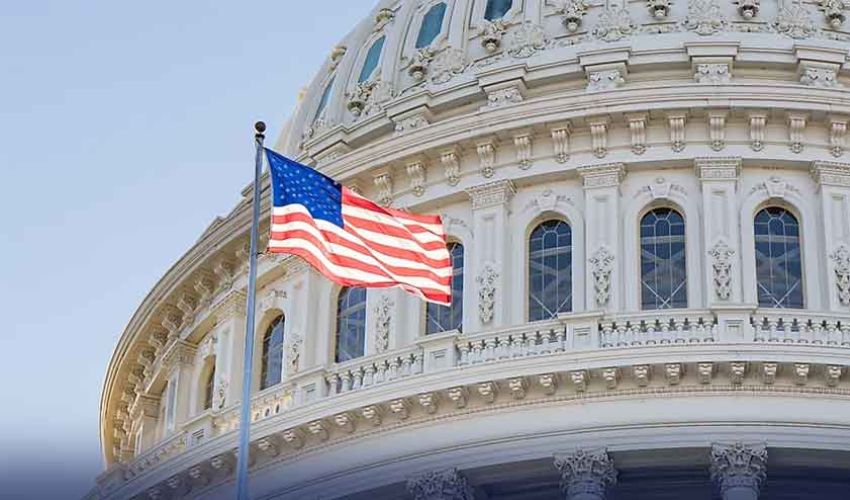The U.S. presidential election is a complex and often lengthy process, and while many expect a swift outcome after polls close, the reality is that counting votes can take days or even weeks. This can create confusion and fuel misinformation, especially in tight races where the margin of victory is small.
As the world prepares for the 2024 U.S. election between Republican candidate Donald Trump and Democratic candidate Kamala Harris, understanding the vote-counting process is essential to avoid misconceptions about the timeline of results.
How US states determine vote counting procedures
Unlike many other countries with a centralized election authority, the United States has no federal vote-counting process. Instead, individual states set their own rules for how and when ballots are counted. This decentralized approach is rooted in the U.S. Constitution, which gives states the power to regulate their own elections, including federal ones. As a result, vote-counting procedures vary widely from state to state, leading to differences in how quickly results can be finalized.
Some states allow ballots to be processed before election day, while others, such as Pennsylvania and Wisconsin, only start counting once the polls close. This creates a time-consuming backlog in states that receive a large volume of mail-in ballots. Consequently, while a clear winner in many states may be determined within hours or days, final certification of the official tally can take significantly longer.
When will we know who won?
The public is often eager to know the results on election night, but the process of officially determining how many votes each candidate received can take time. Despite this, most major news organizations rely on sophisticated methodologies to project a winner in each state before all the votes are counted.
These projections are based on data models and historical voting patterns, combined with real-time election results. News outlets like The Associated Press (AP) have been refining their methods for over 170 years. By using these projections, the media can "call" elections, often predicting the overall winner before the official vote count is completed.
However, in extremely tight races, this process can take days. In the 2020 election, for instance, it took AP four days to declare Joe Biden the winner, while Georgia’s results weren’t finalized until 16 days later. These delays leave room for speculation and can fuel doubts about the legitimacy of the outcome, which has become a fertile ground for misinformation.
The role of electoral college
The United States employs an Electoral College system to determine its president. A candidate must secure at least 270 electoral votes to win the presidency. These votes are allocated by state, based on the popular vote within that state. News organizations predict the winner by "calling" individual states, which contributes to the Electoral College total.
The Electoral College system, while a key factor in determining the winner, often adds a layer of complexity that can lead to confusion, especially when the popular vote and electoral vote differ, as seen in the 2016 election between Donald Trump and Hillary Clinton. The media's ability to project winners in key states, even before all votes are officially counted, provides a sense of finality for the public, but this can be misleading, especially in contested races.
Why official count takes so long
The actual process of counting votes is meticulous, with each state having different rules about how and when ballots can be processed. For instance, some states permit mail-in ballots to be counted as they arrive, while others prohibit the processing of any ballots before election day. This means that in states like Pennsylvania and Wisconsin, where mail-in voting is common, counting cannot begin until election day, leading to inevitable delays.
Mail-in ballots, which surged during the COVID-19 pandemic, have added to this complexity. These ballots take longer to process because they often need to be verified through signature matching or other security measures before they can be counted. Additionally, states like Georgia have enacted laws requiring hand counts of ballots, further slowing the process.
Once all votes are counted, states must certify the results. In most cases, this involves a self-audit to ensure accuracy. Additionally, many states allow for recounts if the margin of victory is slim, which can add further delays. Voters also have a window of time in which they can "cure" their ballots—fix any mistakes that would otherwise disqualify their vote. All of these factors can extend the time it takes to finalize the vote count.
How misinformation thrives in waiting period
One of the most controversial aspects of the drawn-out vote-counting process is how it creates fertile ground for misinformation. In the 2020 election, the extended vote count in battleground states like Pennsylvania, Georgia, and Wisconsin led to widespread claims of election fraud by Donald Trump and his allies. These unfounded allegations were bolstered by the delay in results and the confusion surrounding mail-in ballots.
Even after votes are counted, states have until a specific date to certify their results. For the 2024 election, the deadline is December 11. Once states certify their results, they issue "Certificates of Ascertainment," which officially report the vote count. Congress then formally certifies the president-elect’s victory in January. This long process creates opportunities for misinformation, especially in a hyper-partisan environment where the legitimacy of mail-in ballots and other voting methods are regularly called into question.
To counter the spread of election-related misinformation, experts have urged states to streamline their vote-counting processes. Some battleground states, such as Pennsylvania, Wisconsin, and Georgia, faced significant delays in 2020. While certain states have made efforts to address these issues, others continue to have processes that contribute to slower counts.
Georgia, for instance, has added requirements for hand-counting votes, which experts warn will cause even further delays in the 2024 election. As the number of mail-in ballots is expected to remain high, especially in light of ongoing concerns about public health and voter convenience, delays are likely to persist unless state-level reforms are implemented.



























